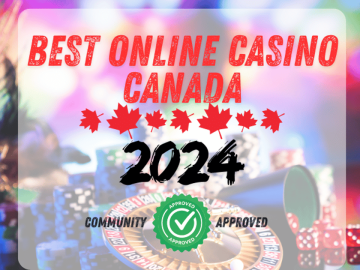The U.S. dollar remains strong against other currencies, and for savvy travelers, that means one thing: Get out the passport.
In places where the dollar is especially robust, such as Japan, South America, and Eastern Europe, globetrotters will find that luxury hotels and five-star restaurants seem like a bargain. Plus, there are ways to make your dollars go even further.
These five money-management tips can save you money or reward you for your spending while you journey overseas:
1. Say “no” or “non” to foreign transaction fees.
These are fees that your card issuer or bank charges when you use a credit or debit card—and in many cases an ATM—in another country.
The average fee is 3% on each transaction. That may not sound like much, but it can quickly add up, especially on luxury travel. For example, if you charge $10,000 on your card while on your vacation, you may pay another $300 in foreign transaction fees.
You can avoid foreign transaction fees by using HSBC credit cards.
By opening an HSBC Premier checking account, you’ll be eligible for the HSBC Premier Debit World Mastercard®, which doesn’t charge foreign transaction fees.
2. Get the best deal on exchange rates.
Your overseas purchases made with a credit and debit card often receive a favorable exchange rate when they’re later converted to U.S. dollars. But not every vendor abroad accepts credit cards. Plus, when you arrive at your destination, you might want some local currency to pay for a taxi or tip hotel staff.
To get more for your dollars when converting to another currency, avoid airport currency exchange kiosks. While convenient, airport currency kiosks tend to offer less-favorable exchange rates and charge a hefty fee.
Instead, see if you can order the currency you need from your local bank or credit union before your trip. You may pay a small service fee, but you’ll likely get a far better rate than at the airport currency exchange kiosk. At HSBC, for example, you can get next-day delivery on foreign currency for a $5 fee.
Or once you’re at your destination, you can get a fair exchange rate by withdrawing local currency from a major bank’s ATM, preferably one that’s in your bank’s network to avoid a fee. HSBC, for example, is part of a network with 55,000 ATMs worldwide.
Avoid independent ATMs that have higher fees and unfavorable exchange rates.
Note: Some merchants abroad may offer to convert your credit card purchases on the spot to U.S. dollars. This way you can see immediately how much you’re paying in dollars. But this service usually has fees and poor exchange rates. Instead, pay in local currency.
3. Earn money while you travel.
Make sure to use a rewards card that gives you points, miles, or cash back whenever you use it.
If you don’t have a rewards card or the one you have is not that generous, shop around. Many cash-back cards, for example, now offer a few hundred dollars as a signing bonus and return 2% to 3% of the price of each purchase as a reward. Some even offer an introductory 0% interest rate for the first 15 months.
But credit cards aren’t the only rewards game for travelers. Increasingly, checking accounts are offering generous competitive perks, including cash back. For example, open an HSBC Premier checking account between now and November 22, 2024, and you can earn up to $2,500 for completing certain qualifying activities.*
4. Insure your trip.
Missed flights, lost bags, or an illness that forces you to cancel your trip at the last minute can happen.
Purchasing travel insurance can prevent the loss of potentially thousands of dollars in prepaid and nonrefundable trip costs. And it can cover emergency medical care overseas or medical evacuations when your health insurance won’t. A policy can cost 4% to 10% of your prepaid, nonrefundable trip cost, according to InsureMyTrip, a travel insurance comparison site.
Your credit card may also offer some limited travel insurance benefits. HSBC credit cards, for example, provide some coverage for lost or delayed luggage, hotel burglaries and trip cancellation.
5. Protect against fraud.
Nothing spoils a trip faster than being a victim of credit or debit card fraud.
To protect yourself, only take credit or debit cards that you will use while traveling. For many travelers, two major credit cards may be enough.
Make sure your contact information with your bank is up to date so it can reach you if it spots suspicious activity in your account. And keep the bank or credit card issuer’s international customer service phone number and your card numbers in a secure place separate from your wallet in case your wallet or card is lost or stolen. Report lost or stolen cards immediately.
Also, notify your bank or credit card issuer of when and where you’re traveling overseas and for how long. While many institutions have fraud detection technology that can tell when you’re traveling, notifying your bank can prevent having any of your card charges or ATM withdrawals declined because they look suspicious.
If you’re a frequent overseas traveler, consider partnering with a bank that has a global presence and premier services, so banking can remain as seamless abroad as it is at home.
With an HSBC Premier relationship, you can manage your money across borders and time zones while knowing you have 24/7 global support.
* Get a $1,500 Cash Bonus: Add New Money of $100,000 to $249,999 in deposit and/or eligible investment accounts within 20 days of opening your new checking account and maintain the Qualifying Balance for 3 full consecutive months.
Get a $2,500 Cash Bonus: Add New Money of $250,000+ in deposit and/or eligible investment accounts within 20 days of opening your new checking account and maintain the Qualifying Balance for 3 full consecutive months.
Cash Bonus will be deposited into your new checking account within 8 weeks of meeting all the offer requirements.




